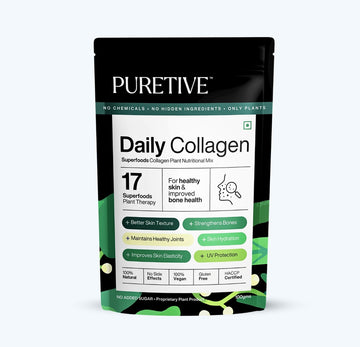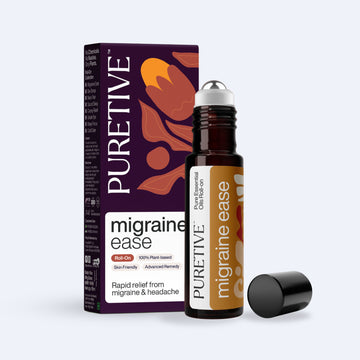How does collagen works?
Collagen is the most abundant protein in the human body and plays a crucial role in maintaining the structure and strength of various tissues. It’s often described as the "glue" that holds the body together, supporting everything from skin and muscles to bones and tendons. But what exactly is collagen, and how does it work within the body?
What Is Collagen?
Collagen is a structural protein made up of amino acids, primarily glycine, proline, and hydroxyproline.
How Does Collagen Work in the Body?
Collagen provides structural support and strength to various tissues in the body through its unique triple-helix structure, which allows it to be both strong and flexible. Here's how collagen works in different areas:
1. Skin
Collagen is a major component of the dermis (the second layer of the skin), where it helps keep the skin firm, smooth, and elastic. It plays a crucial role in wound healing and preventing sagging, wrinkles, and the formation of fine lines.
- How it works: Collagen fibres form a dense network beneath the skin’s surface, giving the skin its structure. The presence of collagen contributes to the skin's ability to resist stretching and provides hydration by supporting the skin's moisture-retaining properties.
- Ageing Effects: As collagen production declines with age (typically starting around age 25), the skin loses elasticity, and fine lines and wrinkles begin to form. External factors like sun exposure, pollution, and smoking also damage collagen fibres, contributing to premature ageing.
2. Bones and Joints
Collagen plays a pivotal role in maintaining the strength and structure of bones and cartilage. In bones, collagen fibres form a scaffold that helps them stay flexible while maintaining their rigidity. In joints, collagen (especially Type II collagen) is a key component of cartilage, which cushions the bones and allows for smooth movement.
- How it works: Collagen helps bones maintain their strength and resilience, preventing them from becoming brittle. In joints, collagen helps keep cartilage flexible and lubricated, reducing friction during movement and providing shock absorption.
- Ageing Effects: As collagen production decreases, bones can become more fragile, and cartilage can wear down, leading to conditions like osteoarthritis. This can cause joint pain, stiffness, and reduced mobility.
3. Muscles and Tendons
Collagen is found in muscle tissue and tendons, providing support and helping muscles contract and function efficiently. Tendons, which connect muscles to bones, are rich in Type I collagen, which contributes to their strength and flexibility.
- How it works: Collagen fibres in muscles and tendons allow for the transfer of force during movement, making it essential for proper function. It also helps prevent muscle and tendon injuries by maintaining tissue integrity.
- Ageing Effects: As collagen production slows down with age, muscles may lose some of their strength, and tendons may become less flexible, increasing the risk of injury.
4. Blood Vessels
Collagen is also found in the walls of blood vessels, where it helps maintain their strength and elasticity. This is important for ensuring proper blood flow and maintaining healthy blood pressure.
- How it works: Collagen fibres in the blood vessel walls provide structural support, preventing vessels from becoming too rigid or weak. It helps blood vessels expand and contract in response to blood flow and pressure.
- Ageing Effects: Reduced collagen in the blood vessels can lead to stiffening of the arteries, which is linked to increased blood pressure and cardiovascular disease risks.
Collagen Synthesis: How the Body Makes Collagen
Collagen is produced by specialised cells called fibroblasts (in connective tissues), chondrocytes (in cartilage), and osteoblasts (in bone). The body synthesises collagen by combining amino acids from the proteins we consume through food. This process requires several nutrients, including:
- Vitamin C: Essential for collagen synthesis, as it helps form collagen's unique structure.
- Amino acids: The building blocks of collagen, such as glycine, proline, and hydroxyproline.
- Copper: A mineral that aids in the formation of collagen fibres.
Collagen production naturally declines with age, and factors such as poor diet, stress, smoking, and excessive sun exposure can accelerate this process.
Supplementing Collagen: Can You Boost Your Collagen Levels?
While the body produces collagen naturally, many people turn to collagen supplements (typically hydrolyzed collagen, which is broken down for better absorption) to support skin elasticity, joint health, and overall vitality. Some studies suggest that collagen supplements may help increase collagen levels in the body, leading to improvements in skin hydration, elasticity, and reduced joint pain.
- Skin Benefits: Studies have shown that collagen supplementation can help reduce wrinkles and improve skin hydration.
- Joint Health: Research has indicated that collagen supplements can support cartilage health, reduce joint pain, and improve mobility in people with osteoarthritis.
- Muscle Mass: Some studies suggest that collagen supplements may help increase muscle mass and strength, particularly when combined with exercise.
Conclusion
Collagen is a critical protein that plays a central role in maintaining the structure, strength, and function of various tissues in the body, including the skin, bones, joints, muscles, and blood vessels. As we age, collagen production naturally declines. That's when Puretive’s vegan daily collagen builder comes into picture, contributing to signs of improved skin elasticity, joint function, or muscle strength, collagen is an essential part of the puzzle. Taking care of your collagen levels is one way to keep your body strong, flexible, and youthful for years to come.










